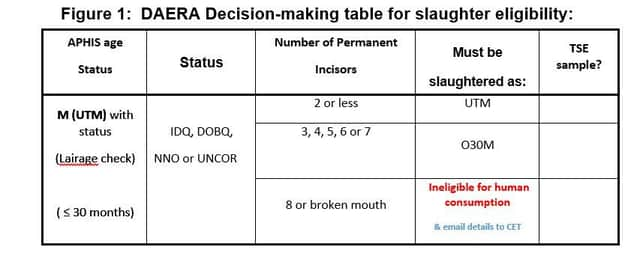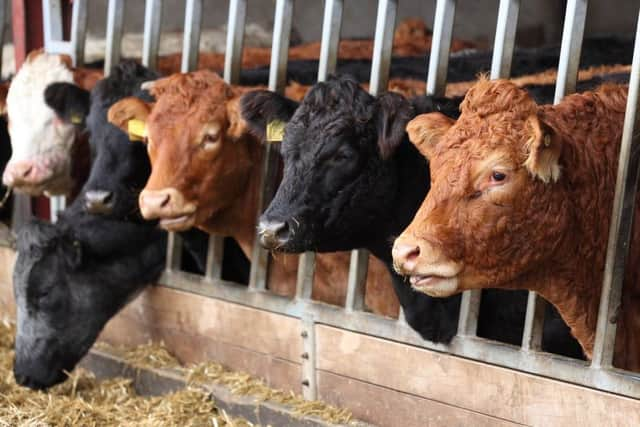Remember to keep an eye out for full mouths


Unfortunately for these farmers they did not become aware of this until the day they presented these cattle for slaughter, having previously purchased the cattle on the assumption they were correct in the market.
On examination by the vet in the abattoir, it was decided that the number of teeth the animal displayed did not match the registered age. On these occasions, this meant that the animals were not considered fit for the supply chain and had to be condemned.
Advertisement
Advertisement
Figure 1 provides an overview of the policy followed by DAERA’s veterinary staff in abattoirs if there are concerns about the physical attributes of a bovine animal in comparison with its registered age.


As demonstrated in the table, decisions are based on the Aphis status as well as the number of incisors, with under two permanent incisors identified as under 30 months; three to seven permanent incisors identified as being over 30 months; while an animal with eight permanent incisors or a broken mouth is considered to be over 36 months.
For an animal which is registered as being under 30 months on Aphis only to be found with eight permanent incisors during an inspection in the abattoir, this presents major concerns for DAERA about the traceability of that animal.
While the occurrence of this situation is very low, often these animals will also have an irregular amount of replacement tags registered to them or the tags will have been tampered with. For DAERA these traceability concerns present too much of a risk for the food supply chain and as a consequence these animals are condemned.
Advertisement
Advertisement
For a genuine farmer caught in this situation they are often left to carry the can because of the unscrupulous behaviour of someone who has previously owned the animal.
If the animal is disposed of it will hold no value leaving the farmer with a significant loss and their only option will be to address this with the previous owner or mart they bought it in.